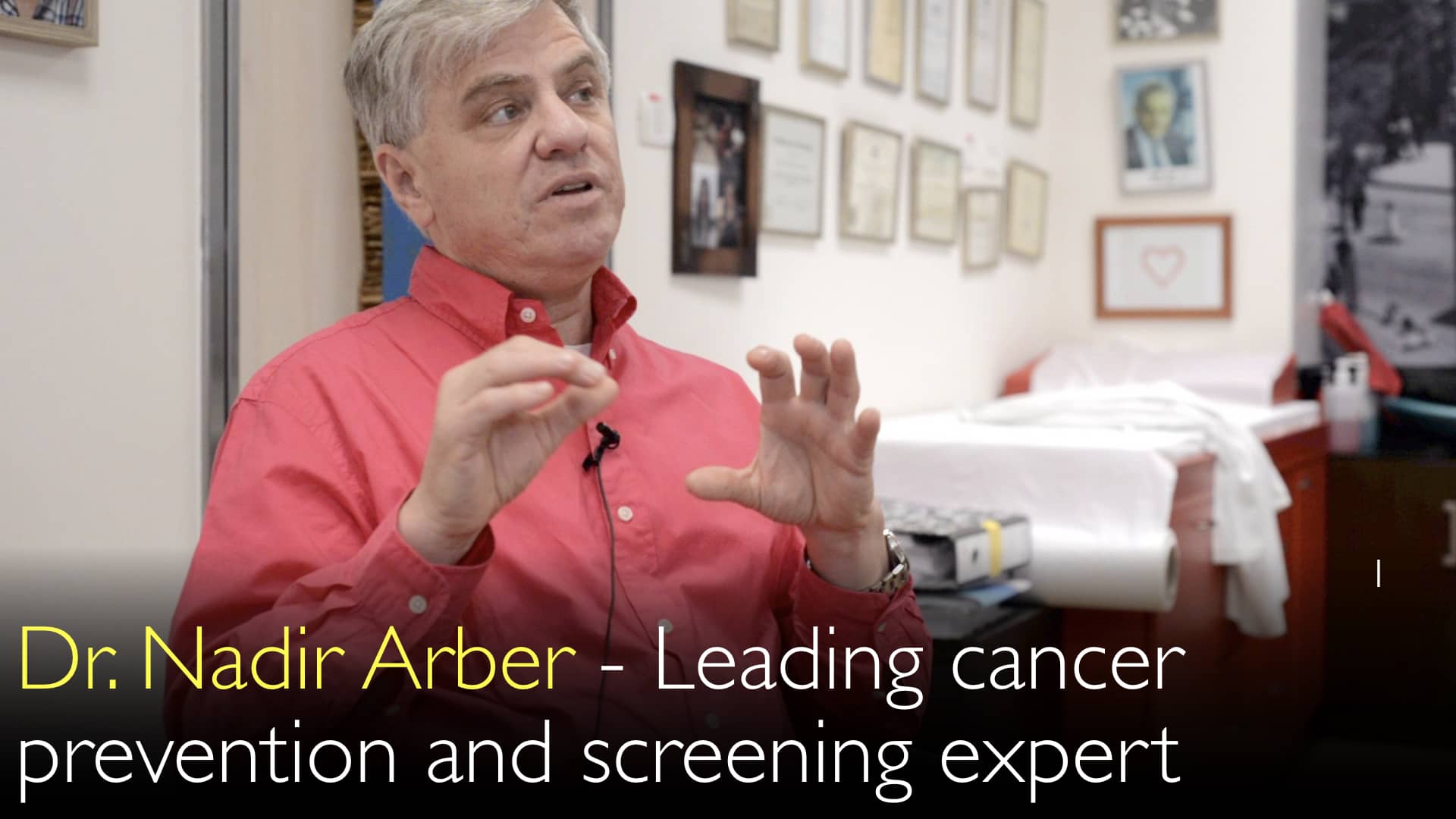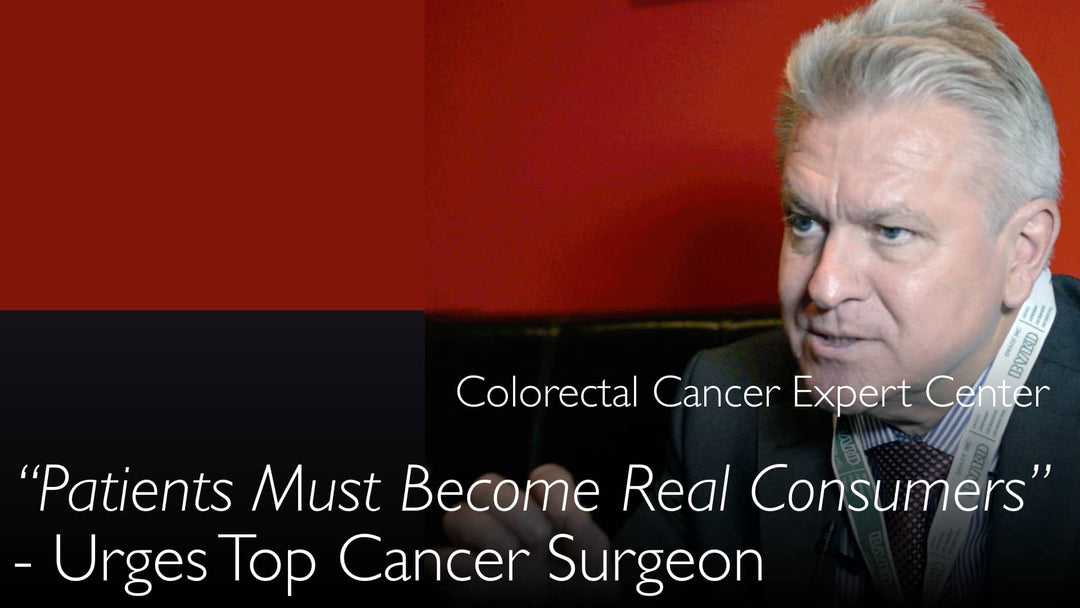Leading oncologist and cancer prevention expert, Dr. Nadir Arber, MD, discusses the potential of aspirin and COX-2 inhibitors in cancer prevention. Aspirin, a long-standing medication, may reduce the risk of gastrointestinal cancers and other major health issues like ischemic heart disease and Alzheimer's disease. Dr. Nadir Arber, MD emphasizes the importance of using aspirin correctly to minimize side effects, such as bleeding, which can be managed by addressing Helicobacter pylori infections. Additionally, COX-2 inhibitors have shown promise in reducing colon polyps, a precursor to colon cancer, although concerns about cardiovascular toxicity have limited their use. Dr. Arber advocates for personalized medicine approaches to optimize the benefits of these medications while minimizing risks.
Exploring Aspirin and COX-2 Inhibitors in Cancer Prevention
Jump To Section
- Aspirin's Role in Cancer Prevention
- Mechanisms of Aspirin in Cancer Prevention
- COX-2 Inhibitors and Colon Cancer Prevention
- Managing Side Effects of Aspirin and COX-2 Inhibitors
- Personalized Medicine in Chemoprevention
- Full Transcript
Aspirin's Role in Cancer Prevention
Dr. Nadir Arber, MD, highlights aspirin's potential as a "magic bullet" for preventing major health issues, including cancer. Aspirin has been extensively studied for its ability to reduce the risk of gastrointestinal cancers, particularly colorectal cancer. Its long history and well-documented efficacy make it a promising option for cancer prevention when used appropriately.
Mechanisms of Aspirin in Cancer Prevention
Aspirin's cancer-preventive effects are attributed to its anti-inflammatory properties and ability to inhibit platelet aggregation. Dr. Nadir Arber, MD explains that aspirin can interfere with cancer cell proliferation and reduce the risk of metastasis. Despite some controversy, the evidence supporting aspirin's role in cancer prevention is substantial, provided it is used under medical guidance.
COX-2 Inhibitors and Colon Cancer Prevention
COX-2 inhibitors, such as those developed by Merck and Pfizer, have shown promise in reducing colon polyps, which can develop into colon cancer. Dr. Arber led a significant international clinical trial demonstrating a 50% reduction in colon polyps with COX-2 inhibitors. However, concerns about cardiovascular toxicity have limited their widespread use for cancer prevention.
Managing Side Effects of Aspirin and COX-2 Inhibitors
Dr. Nadir Arber, MD emphasizes the importance of managing potential side effects, such as gastrointestinal bleeding associated with aspirin use. Addressing Helicobacter pylori infections can mitigate these risks. While COX-2 inhibitors have been linked to cardiovascular issues, careful patient selection and monitoring can help minimize adverse effects.
Personalized Medicine in Chemoprevention
Dr. Arber advocates for a personalized approach to chemoprevention, considering genetic factors that may influence a patient's response to aspirin and COX-2 inhibitors. By tailoring treatment to individual genetic profiles, healthcare providers can optimize the benefits of these medications while minimizing risks, paving the way for more effective cancer prevention strategies.
Full Transcript
Dr. Anton Titov, MD: Aspirin might be a magic bullet to prevent diseases. Today, there are three major catastrophes: ischemic heart disease, cancer, and Alzheimer's disease. Most probably, aspirin can prevent or delay all three major health catastrophes. Let's talk about the chemoprevention of cancer. How can we use medications to lower the risks of cancer? How can we use medicines to lower the chances of cancer returning if it has already been diagnosed and treated?
Dr. Nadir Arber, MD: Aspirin for cancer prevention is not controversial. There is a long history and a lot of data about aspirin in cancer prevention. But aspirin must be used in the correct way. It can prevent not only colon cancer but many other cancers. Aspirin was first marketed in 1897, more than 120 years ago, and is still prescribed. I think that aspirin might be the magic bullet for cancer prevention. We know a lot about aspirin's efficacy and toxicity, so I feel safe about it.
When a patient comes to me, they often say, "We would like to live longer and better." This is a big mistake during clinical trials for cancer chemoprevention and early detection. They use one organ as the target of a clinical cancer prevention trial. This is a mistake because you should look for overall morbidity and mortality, not just one specific organ.
I'm going to tell you about a big clinical trial where I was a principal investigator. We used COX-2 inhibitors to prevent colon cancer and had amazing results. Aspirin might be a magic bullet to prevent many types of cancer. We know the profile of aspirin side effects is low. Even if there is major bleeding, we know as gastroenterologists how to prevent it. But bleeding due to aspirin is quite rare, especially if we treat Helicobacter pylori.
Dr. Nadir Arber, MD: Helicobacter pylori is an important risk factor. It can increase the risks of side effects, but it can be easily identified by a diagnostic test. Helicobacter pylori can also cause gastric cancer. I think aspirin should definitely be taken for cancer prevention. I personally take it, and I think this is the way to go. It's true that the genetic profile is also important to reduce aspirin risks.
We also published a paper about genetic influence on cancer prevention. We can predict the response to non-steroidal anti-inflammatory COX-2 inhibitors based on data from our genome. Now we are trying to validate it in a large number of samples. This is going to be the way forward. Somebody will be prescribed aspirin or a novel medication, and we'll make sure that the patient doesn't carry a mutation for high side effects risks.
In 1999, Merck and Pfizer came to the market with a new medication: COX-2 inhibitors. There are two COX enzymes in our body. COX-1 is the housekeeping gene. It keeps the integrity of the gastrointestinal mucosa. COX-2 is not expressed in normal mucosa but is upregulated as a consequence of inflammatory or neoplastic cancer-inducing stimuli.
Merck and Pfizer came out with COX-2 inhibitors that inhibit only COX-2. They did not inhibit COX-1. This should be the preferred medication because it does not damage the normal gastric mucosa. At that time, I approached Merck and Pfizer. I told them that whenever you want a new medication, first you look for toxicity. If the drug is not toxic, then you look for efficacy.
Now you have a perfect medication. It's not toxic and very effective in controlling pain and inflammation. Why don't we try to find new indications? Let's see if COX-2 inhibitors can also prevent cancer. Merck said, "Excellent idea, we'll do it by ourselves." But Pfizer let me and Professor Bernard Levine do it. We did an international multicenter clinical trial with 1561 patients from five continents and 107 medical centers.
We gave this medication, COX-2 inhibitor, to patients with colon polyps. We were able to show that after 3 and 5 years, we reduced the numbers of colon polyps by roughly 50%, especially advanced adenomas. Advanced adenomas are more prone to develop into colon cancer. There were two other parallel clinical trials at the same time, and they were stopped due to unforeseen cardiovascular toxicity.
Dr. Nadir Arber, MD: Everyone had concerns about GI toxicity, but they found some cardiovascular toxicity. This is strange because the number of patients was very low. We had about 19 and 31 with heart toxicity of COX-2 inhibitors. It's very low. Side effects became evident after a year or 1.5 years, only in patients with some risk factors, like ischemic heart disease.
With these patients, you should be more careful and conservative. But other patients did well, especially those with high risk for colon cancer. COX-2 inhibitor is an ideal medication to prevent colorectal cancer in high-risk patients. But the cancer prevention indication of COX-2 inhibitors was put on hold, not for medical or scientific reasons. Unfortunately, we can't use this effective medication anymore for cancer prevention. There are not many other chemopreventive medications in wide use to prevent colon cancer. It's probably for liability reasons. They were worried that somebody might sue them.
Dr. Anton Titov, MD: Chemoprevention of cancer is certainly a very important topic.








